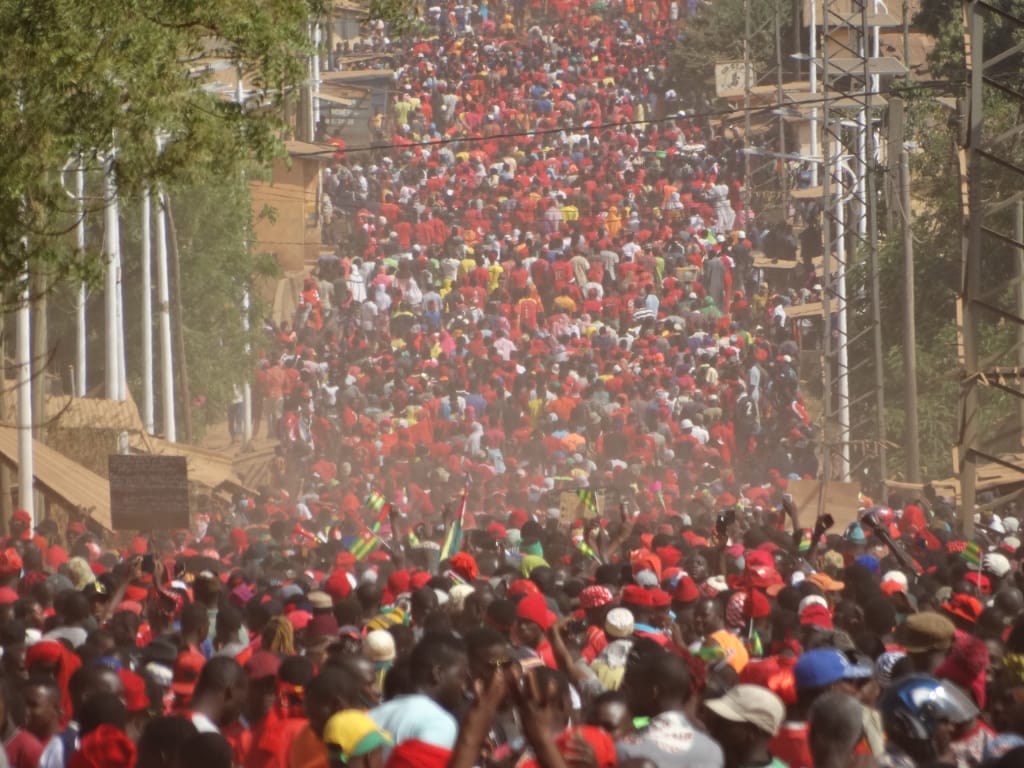On Thursday, November 29, thousands of protesters flooded the streets of Togo’s major cities, including the capital Lomé, to once again demand political change. The demonstrators heeded a call from a coalition of opposition political parties – commonly known as the C14 – and civil society groups that have grown increasingly frustrated with the government’s lack of commitment to long-overdue reforms, particularly as they relate to the holding of free and fair elections. In a now all too familiar scene, the autocratic government of Faure Gnassingbé – leader of the longest military-backed regime in Africa – responded with tear gas, intimidation and brute violence.
Despite mounting threats and intimidation, protest organizers have vowed to continue with major demonstrations – planned for Saturday, December 2 and Tuesday, December 4 – to show that the majority of Togolese citizens fundamentally disagree with the approach of the Economic Community of West African States (ECOWAS) and their handling of the country’s crisis, which flared in August 2017.
Indeed, on August 19, 2017 the Togolese people protested in record numbers, demanding reinstatement of the country’s 1992 constitution, which includes presidential term limits and the diaspora’s right to vote. These demands followed a decade of brazen procrastination by the government and the continued failure of leadership in a region that has otherwise showed tremendous democratic advancements, from success stories in Ghana and Senegal, to the democratic renewal in Gambia. By contrast, Togo is moving backward. President Gnassingbé is now serving a third controversial term in office and appears determined to run again in 2020, despite the emerging regional norms.
The protests in 2017 and early 2018, left dozens of people dead, hundreds more injured and four activists in jail. To date, there has been zero accountability for the deaths and arbitrary detentions that have flourished in Togo.
The ensuing negotiations between the government and the C14 in February 2018 hit an impasse almost immediately, largely due to government intransigence. The majority demand was and remains quite clear: Faure Gnassingbé, under no circumstances, should be allowed to remain in power beyond 2020. This political stalemate led ECOWAS to propose a so-called “roadmap,” featuring parliamentary elections by December 20, 2018 and constitutional reforms that would include term limits.
Meanwhile, the government set parliamentary election dates for December 20 and initiated a voters’ registration process. The opposition and Togo’s main civil society groups have boycotted these moves, contending that the National Electoral Commission is unfairly dominated by pro-government appointees, thereby tipping the political playing field in favor of the government. What is more, the issue of presidential term limits remains unresolved – in its stead are merely surface level “improvements” meant to deflect legitimate criticism, both domestic and international.
Frustrated with the lack of good faith by the government, which is determined to hold elections on December 20, in addition to a highly flawed voters’ roll, the opposition has resumed street protests with full force. In so doing, the coming months will likely remain tenuous, as the population grows increasingly impatient and combative, and determined to end Togo’s 52 years of single-family rule.
Wolali K. Ahlijah is the operations Director for the Togolese Civil League and cofounder of the Faure Must Go campaign. A keen analyst of Togolese politics and an active member of the diaspora, Wolali works closely with Togolese civil society to create pathways for the rule of law, democracy and freedom. You can follow him on Twitter here: @Wolali
DISCLAIMER: The views expressed in this publication do not necessarily reflect the views of Vanguard Africa or the Vanguard Africa Foundation.

